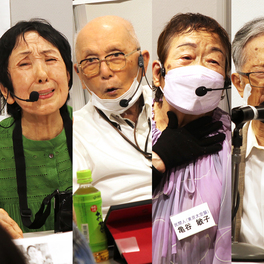Over 40% of local branches of the War Bereaved Families Association in Japan have experienced a decrease in their activities. This trend, as reported recently, is largely due to the aging and declining population of post-war families. Despite government support and endorsements, these associations are facing challenges in sustaining their activities, raising questions about the future of war remembrance and related actions in Japan.
In Japan, the War Bereaved Families Association plays a significant role in maintaining the legacy and memory of those lost in war. They organize memorial services, engage in community education, and maintain a powerful political voice in the country. However, Japan's aging population and the growing distance in time from World War II means fewer families have direct connection to these losses, affecting the Association's activities and relevancy.
In the US or EU, veteran associations and organizations that support families of war casualties also play a significant role in society. While they face similar challenges brought on by changing demography and societal evolution, the culture of active remembrance and support for these organizations is comparatively more strong.

